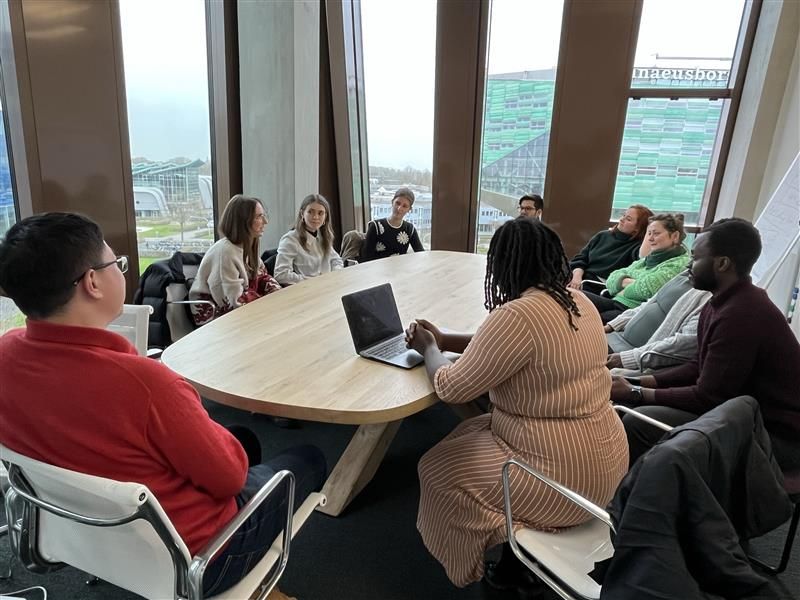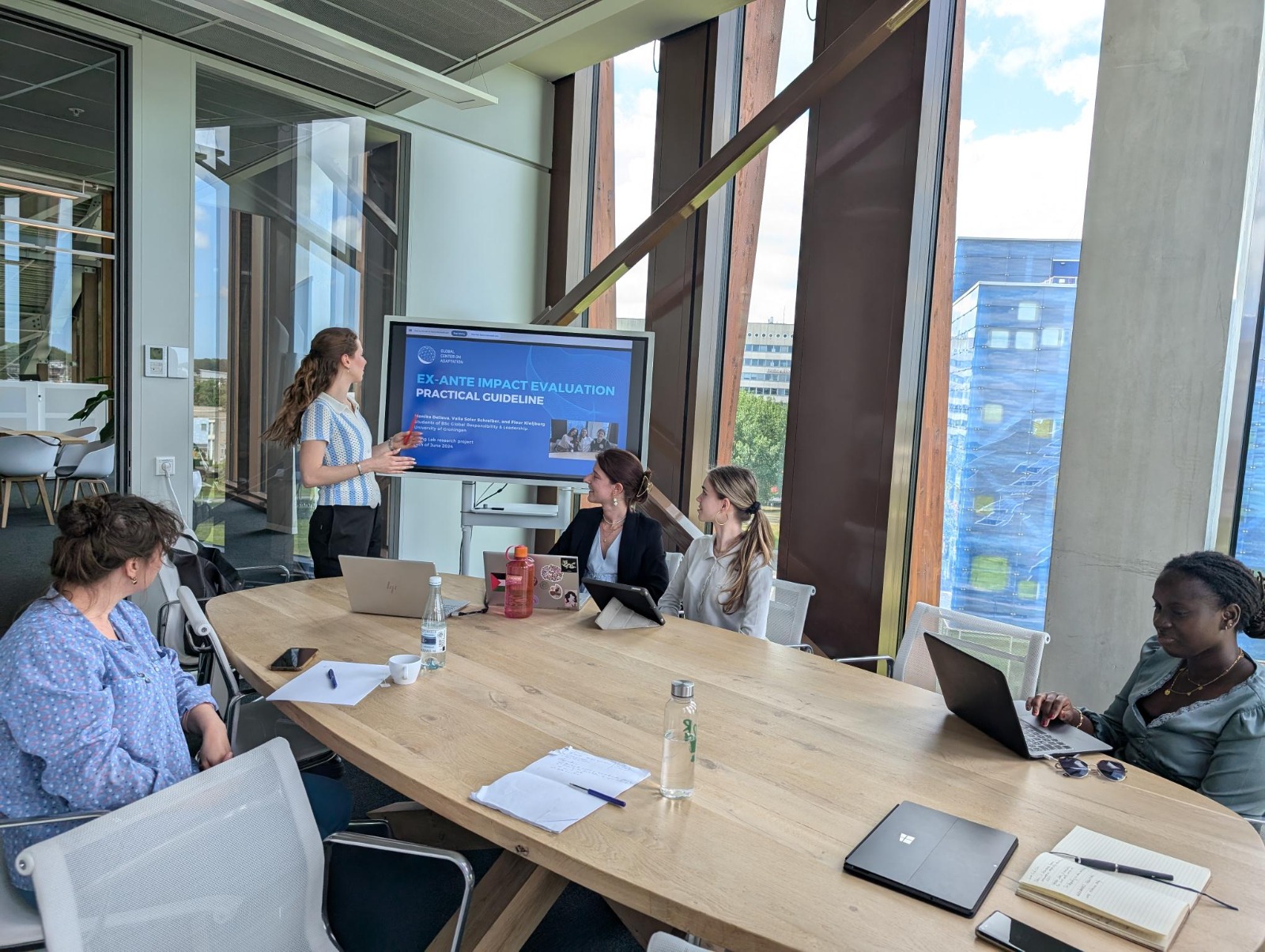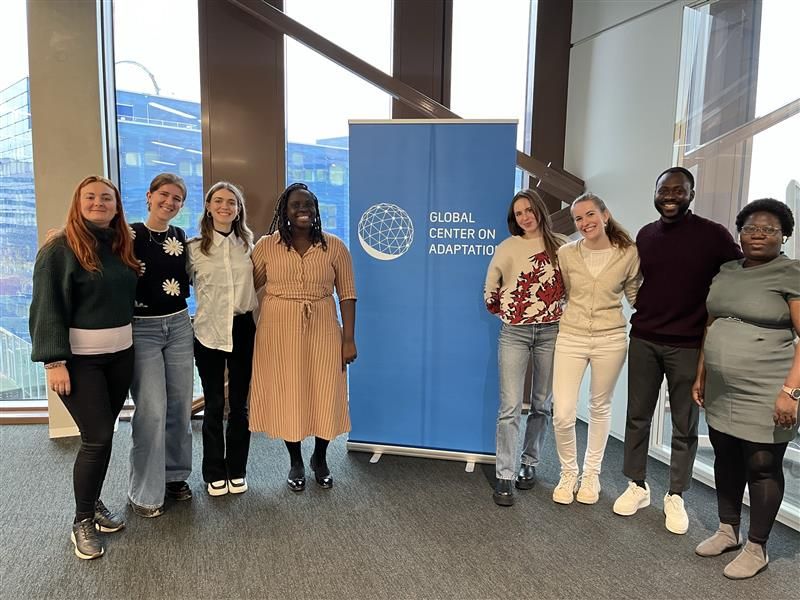Predicting Success: How Pre-Implementation Impact Evaluation Can Transform Climate Adaptation Projects
In this blog, students from the University of Groningen share their research journey at the Global Center on Adaptation, highlighting how a pre-implementation impact evaluation can ensure the effectiveness, sustainability and climate-resilience of infrastructure projects.
W hat if we could predict the success and impact of climate adaptation projects before they even start? Ex-ante impact evaluation or pre-implementation impact evaluation lets us do just that by assessing the potential impacts of planned projects ahead of time. This proactive tool is invaluable for stakeholders and policymakers, ensuring that projects are both effective and sustainable.
Our Research Journey

As three research interns, we were tasked with designing a pre-implementation impact evaluation for a project under the Global Center on Adaptation (GCA). Over six months, we conducted a literature review, developed a logic model, and created measurement indicators to deep dive into pre-implementation impact evaluation. Our efforts culminated in a practical guideline aimed at enhancing GCA’s future projects. Our focus was the Abidjan-Lagos Highway project, a major infrastructure initiative being financed by the African Development Bank and climate-proofed by GCA as part of the Africa Adaptation Acceleration Program. It links the cultures and economies of five West African countries.
Key Insights
Through our literature review, we learned the essential steps for conducting a pre-implementation impact evaluation: designing the evaluation, operationalizing the plan, and reporting the results. For the Abidjan-Lagos Highway project, we concentrated on understanding the intervention logic. This involved learning about inputs, outputs, outcomes, and impacts, and mapping out potential cause-and-effect relationships. By creating relevant indicators, we could measure and evaluate the expected outcomes and impacts, essentially confirming the project’s anticipated success. Ultimately, we produced a practical guide for GCA based on our evaluation experience.
Future Directions
For future research, it would be beneficial to add a deeper layer of analysis by exploring indicators on multiple levels for both short and long-term impacts. Additionally, comparing the strengths and weaknesses of post-implementation and pre-implementation impact evaluations could provide further insights.
Our Experience

The project was both challenging and rewarding. It expanded our perspectives and pushed us to think critically and logically. Working as a diverse team of students from the University of Groningen’s Global Responsibility and Leadership program allowed us to leverage each other’s strengths and tackle the project from multiple angles. Collaborating with GCA experts gave us practical insights into project implementation. While we initially struggled with new concepts like the logic model and baseline study, continuous practice and guidance from our supervisors helped us apply these concepts effectively.
Looking Ahead

As we wrap up our time with GCA, we believe that achieving a sustainable and resilient future depends on refining these evaluation frameworks. We envision a future where pre-implementation impact evaluations are integral to project planning, guiding decision-making processes to invest in initiatives with the greatest benefits for communities and the environment.
Reflection is key. By continually evaluating project outcomes and impacts, we learn and improve. Critical analysis of what worked and what didn’t allows us to adapt our approaches and methodologies, ensuring future projects are even more effective.
The future is bright. With the right tools, collaboration, and a commitment to continuous improvement, we can create a world that not only withstands climate challenges but also turns them into opportunities for social, economic, and technological advancements for all.

Fleur Kleijburg, Monika Delieva, and Valia Schreiber
Students of the Class of 2025, Bachelor of Science in Global Responsibility and Leadership, University of Groningen
The ideas presented in this article aim to inspire adaptation action – they are the views of the authors and do not necessarily reflect those of the Global Center on Adaptation.